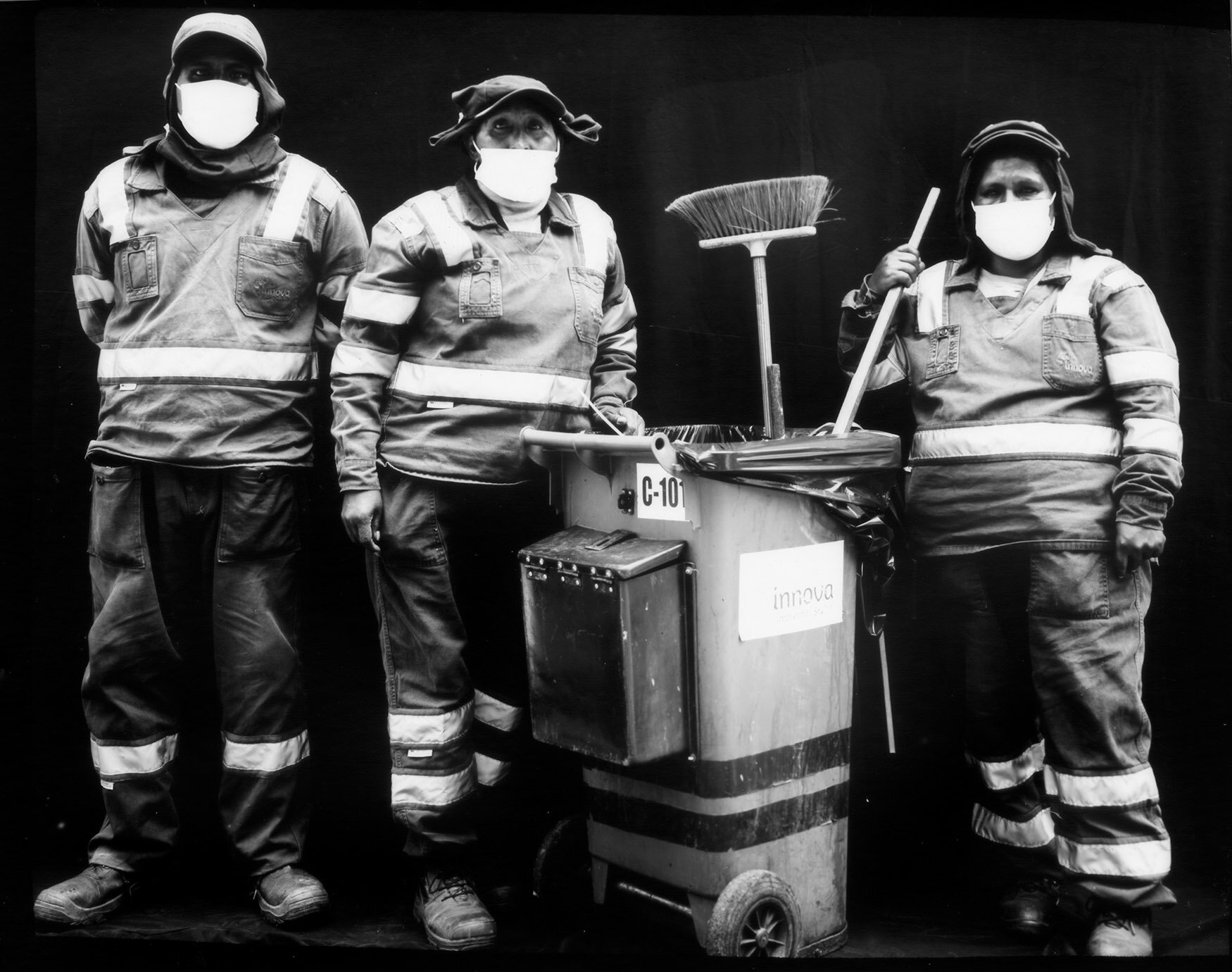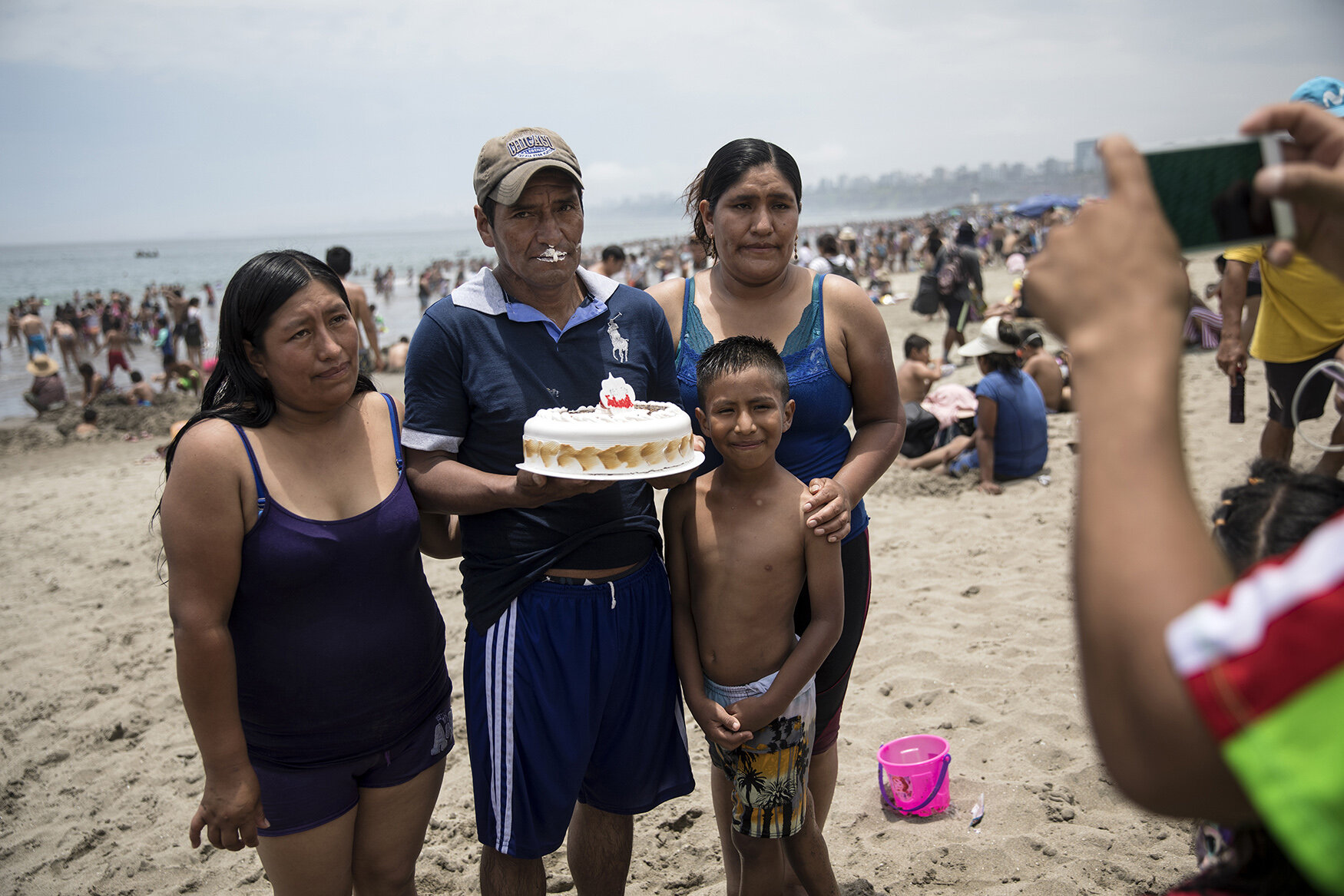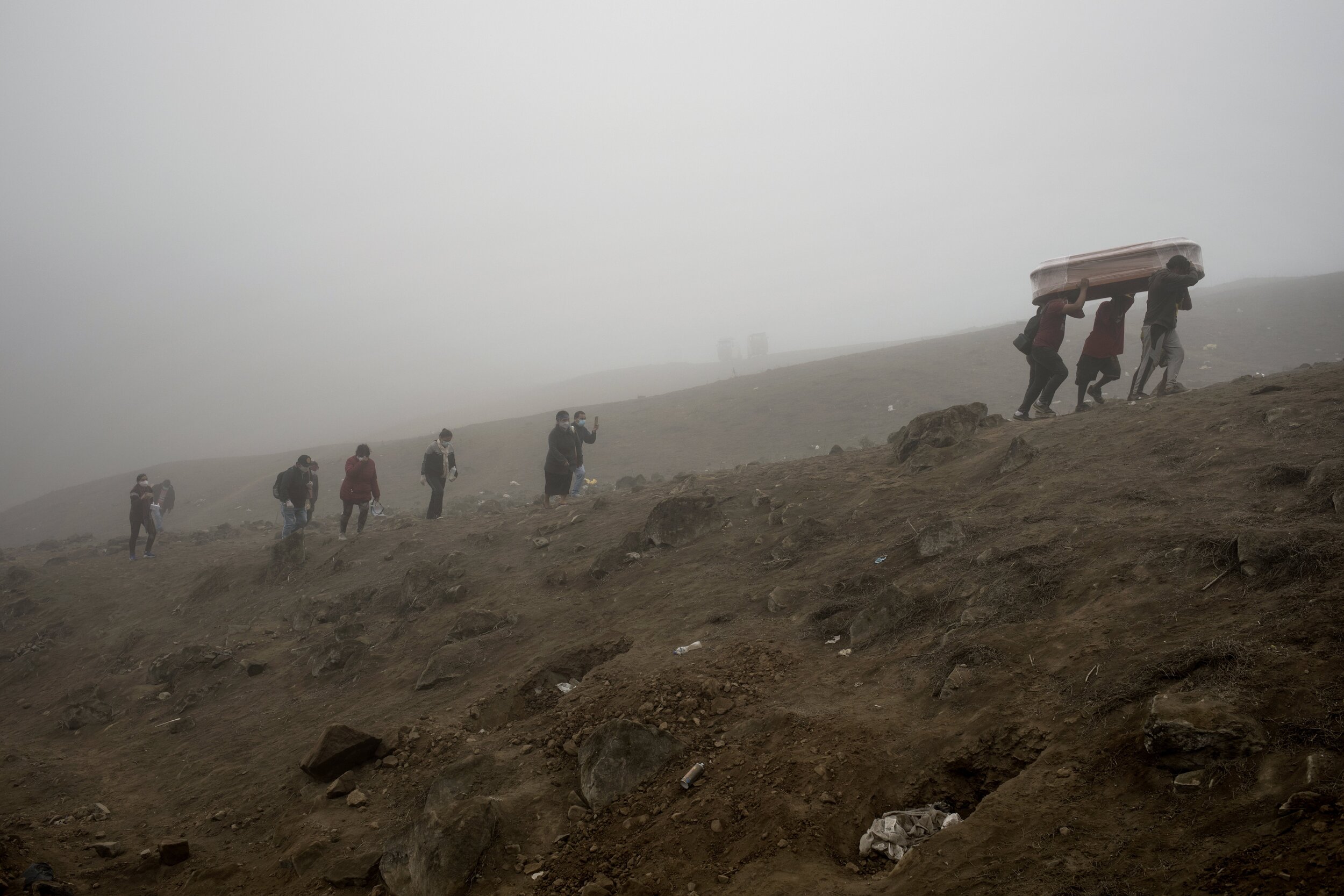The faces of Peruvians going through a hard year

Mesa Redonda is the main wholesale market in Peru’s capital and in 2020 it has been one of the main hotspots of the new coronavirus.
At least 300,000 people come daily to buy food or basic goods, and they have kept coming despite the pandemic.
Photographer Rodrigo Abd brought a wooden camera — a box with a lens and space for a developing lab inside — to take black and white portraits of people who were at the market because they needed to keep living, with or without COVID-19.
“Fighting, that’s how we live.”
— Daniel Torres Bazan
Elders have been some of the most vulnerable people during the pandemic. Like Arnulfo Ramírez, who makes a living these days by selling candies on the streets around the market.
At 75 years old and single, with no kids, he says he is generally a grumpy man who doesn’t often have good things to say about people. But this year he got a lesson in humility when a stranger gave him a bag of food one day when he hadn't had anything to eat.
“I’ve realized that there are still some good people,” Ramírez said.
Peru passed 1 million confirmed cases of coronavirus infections a few days ago. It was the fifth country in Latin America to surpass that number, and it has been one of the most affected in the region. The World Bank and the International Monetary Fund forecast that Peru's economy will contract between 12% and 14% this year, one of the worst falls around the world.
“Before the pandemic, we played in discos and events, now we live off tips, but we keep moving forward.”
— Lead Singer Jesus Sierra
“I’ve worked every single day without resting,” said Biviana Torres, a 37-year-old street cleaner who during the pandemic has been assigned to clean Mesa Redonda and two other markets as well as three hospitals and Lima's morgue. She said eight co-workers have died during the pandemic.
Peru, with a population of 32 million people, declared a total lockdown in March and ordered people to stay home trying to contain the virus, but as the pandemic kept going and people needed to find ways of living, many ignored the rules and went out.
Daniel Torres, 44, was one of those who was on the streets despite the lockdown. He is a street vendor and had nothing to eat, he said, so he was forced to go out. These days, he sells mosquito nets.
Even before the pandemic, many Venezuelans fleeing from the economic crisis in his country migrated to Peru, where it was difficult for some of them to find jobs. Then the coronavirus hit, and it became even harder to find work and put food on the table.
“The pandemic has been catastrophic for us. We are just recovering little by little.”
— Maria Isabel Medina Flores
Venezuelan Diego Gómez arrived in Lima three years ago. He got a job sewing bags, but he lost it during the pandemic, and now he sells candy on the streets.
“It’s very hard for many of us who were forced to live as migrants,” the 31-year-old said.
As in any country in the region, the Mesa Redonda market is a microcosm of the variety of people living in Peru — from the obvious buyers and vendors of all kinds to those who come because they are sure they can make some money, like musicians.
Six Venezuelans, members of the “Rimac Show” musical group, go around Lima playing salsa and cumbia, and sometimes they perform at the market.
“Before the pandemic, we played in discos and events,” said Jesús Ibarra, the singer of the group. “Now we live on tips, but we keep moving forward.”
“This pandemic was very hard for us.”
— Biviana Torres Aderiano
“When I go out I cover myself a lot with these clothes for fear of contagion. There is a lot of risk out there.”
— Eva Fernandez
“I’ve realized that there are still some good people.”
— Arnulfo Ramirez
“The pandemic is stronger for migrants. You have to have a heart of stone to resist. Almighty God allowed us to survive and I hope this situation helps us to unite as human beings.”
— David Gomez
“I’m a carpenter and I don’t have a job because all the clients are broke.”
—Bernan Castro
“In my work as a journalist I see the many needs and the suffering of people.”
— Gyofred Wilder Robinzon
“I have four cowerkers and acquiantences who have died from the pandemic, and not just her but also in Venezuela.”
— Nelson Partidas
“I was hit by the pandemic, business in down these days.”
— Luis Alberto Solis Gil
“It's not easy to work on the street for Venezuelan migrants like me.”
— Erika Viera
My son was infected and recovered. I did not work for 4 months and I took care of myself all of this time with natural medicines.
— Olinda Cerron Sotomayor
“I wake up praying in my house. God has fed me.”
— Maria Asuncion
“I am a teacher but now am on vacation.”
— Rosa Torres
"I'm here in this market looking for a job.”
— Angela
Text from AP News story, AP Photos: The Faces of Peruvians going through a hard year
Photos by Rodrigo Abd





